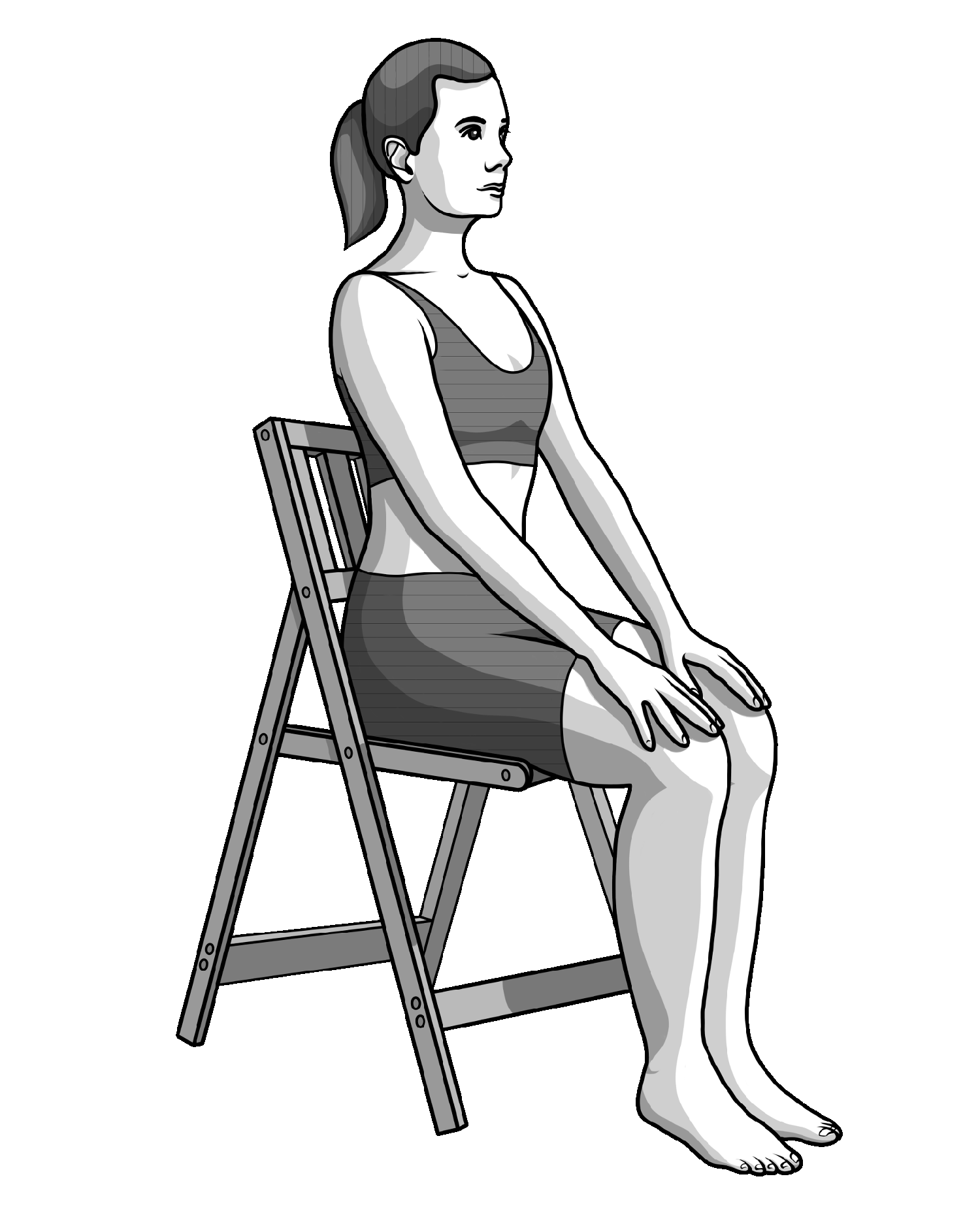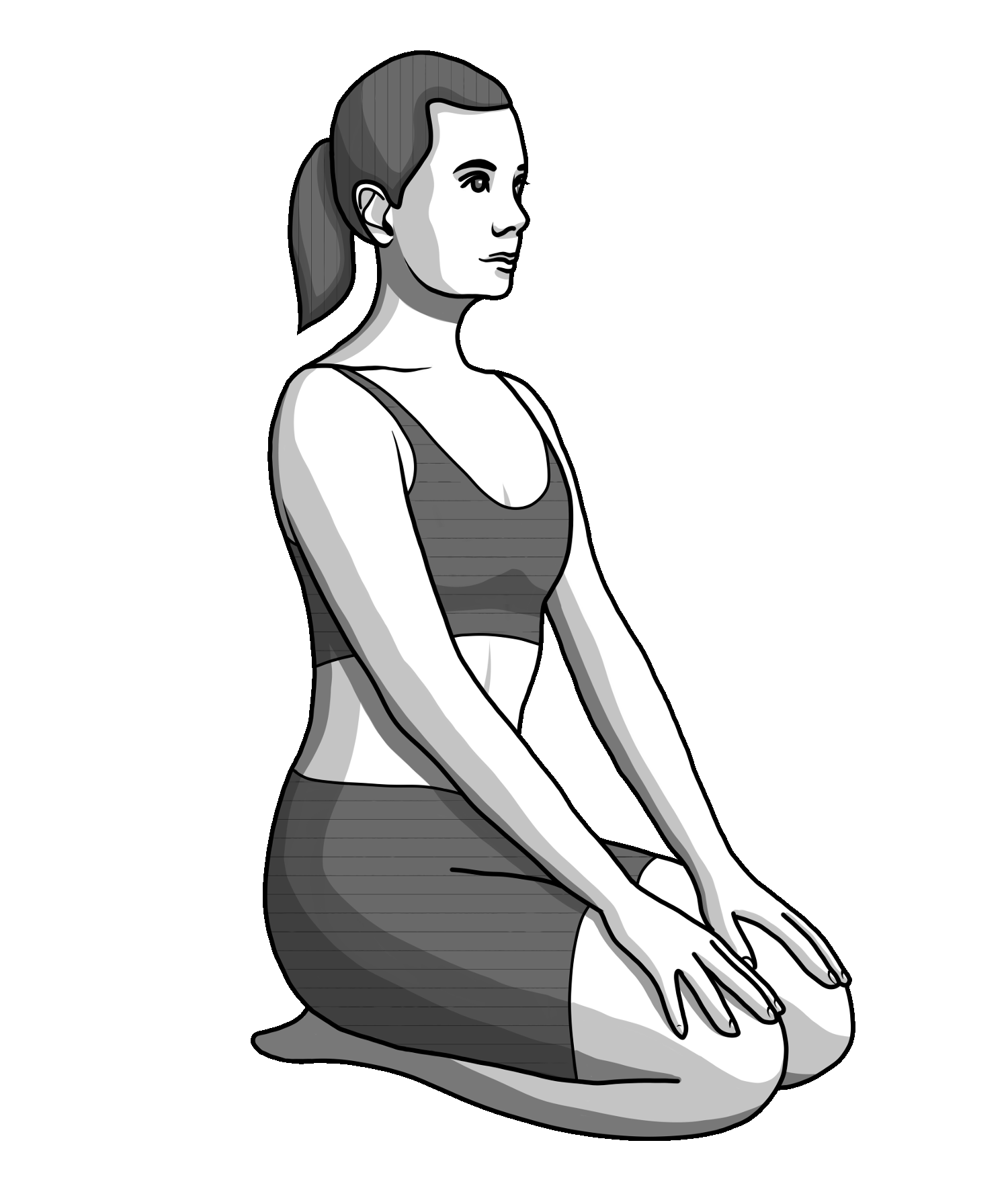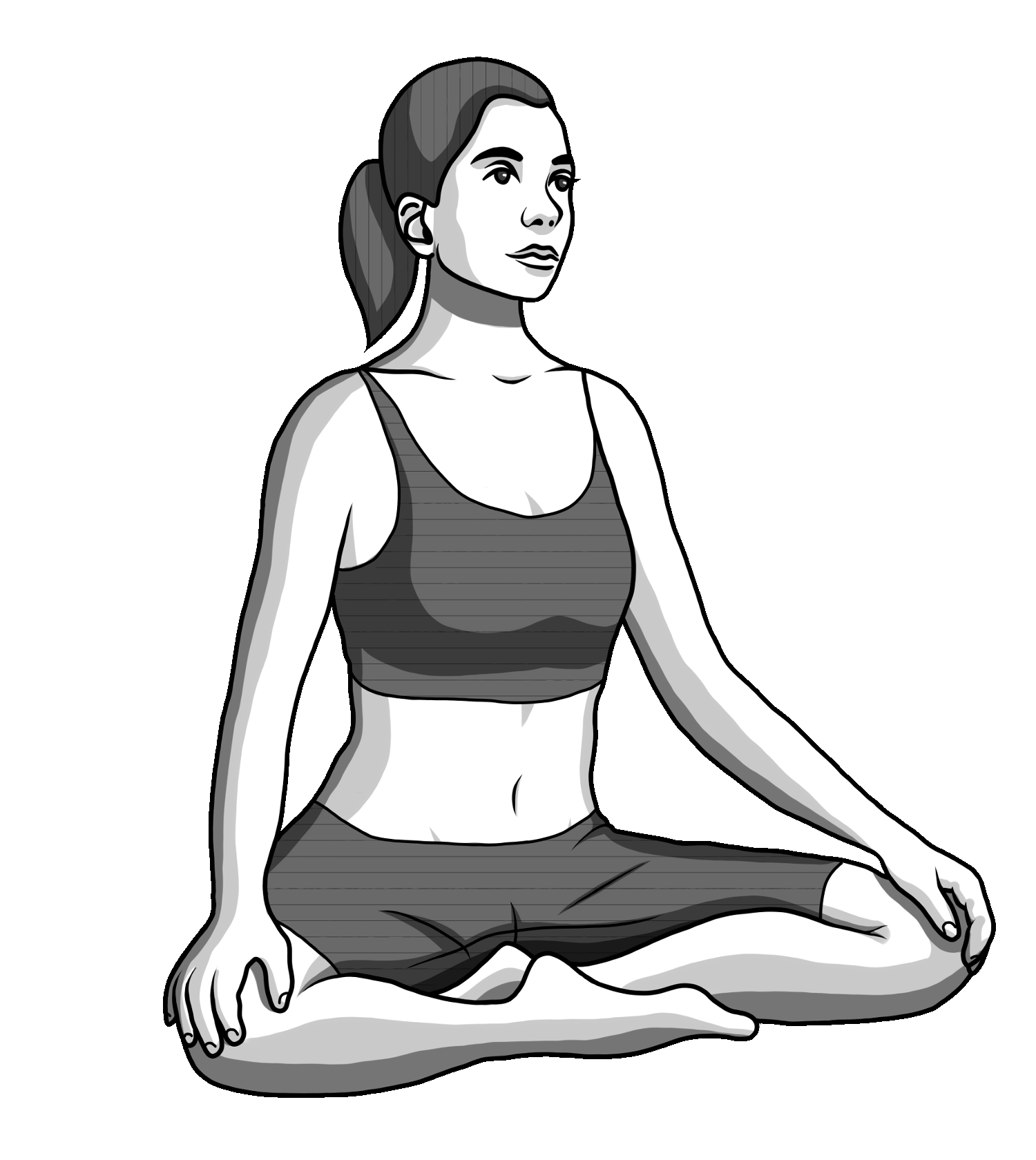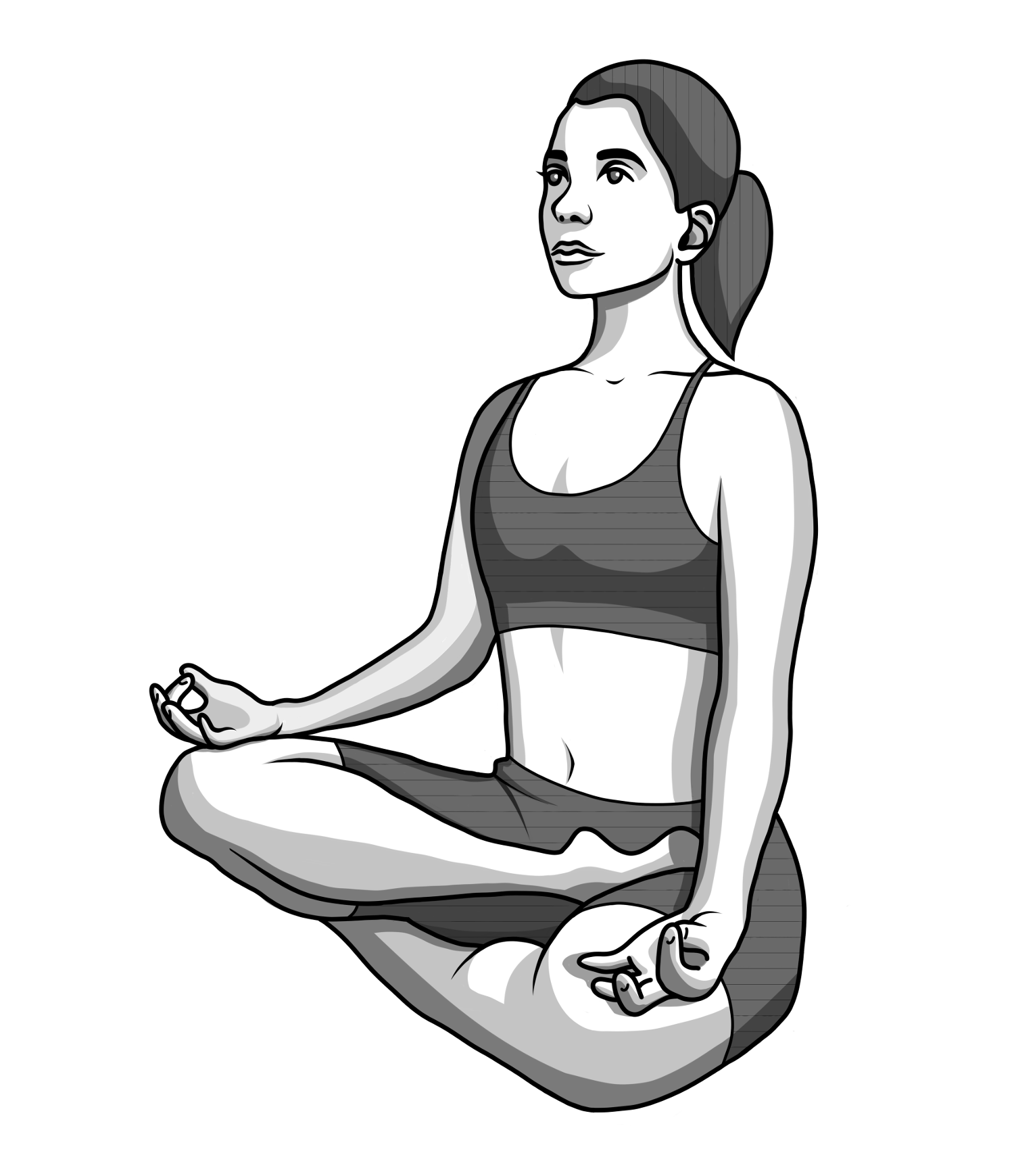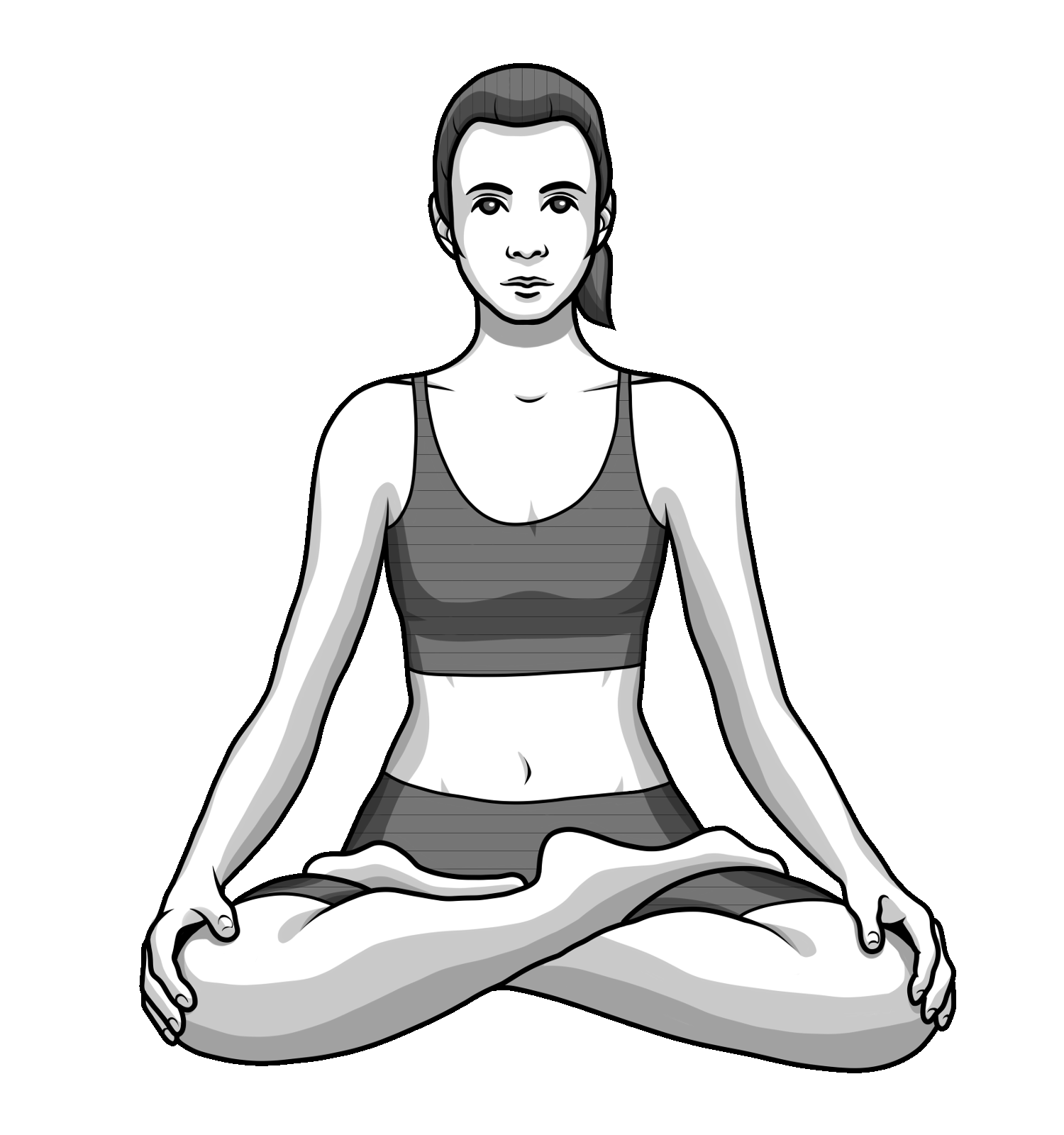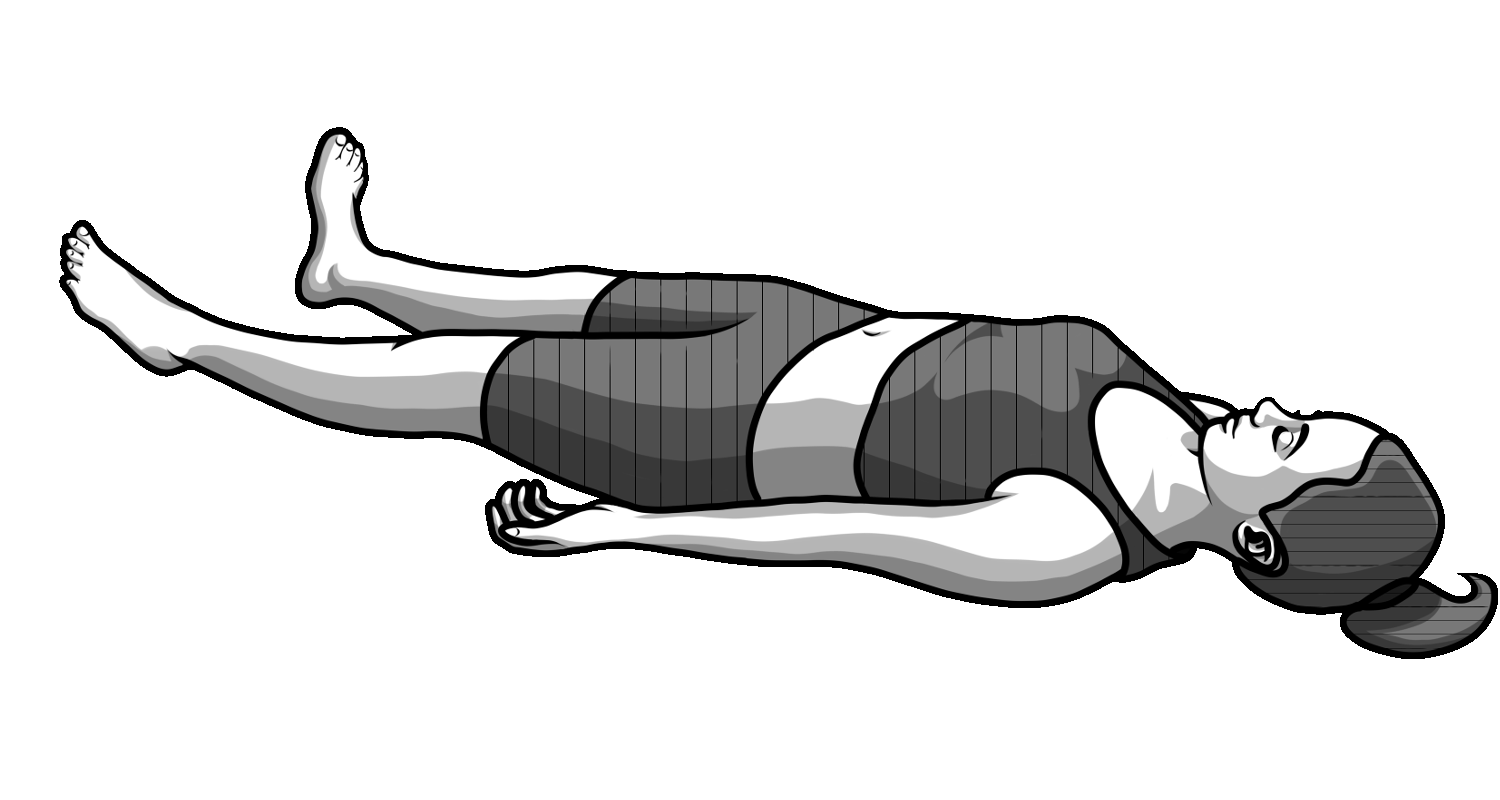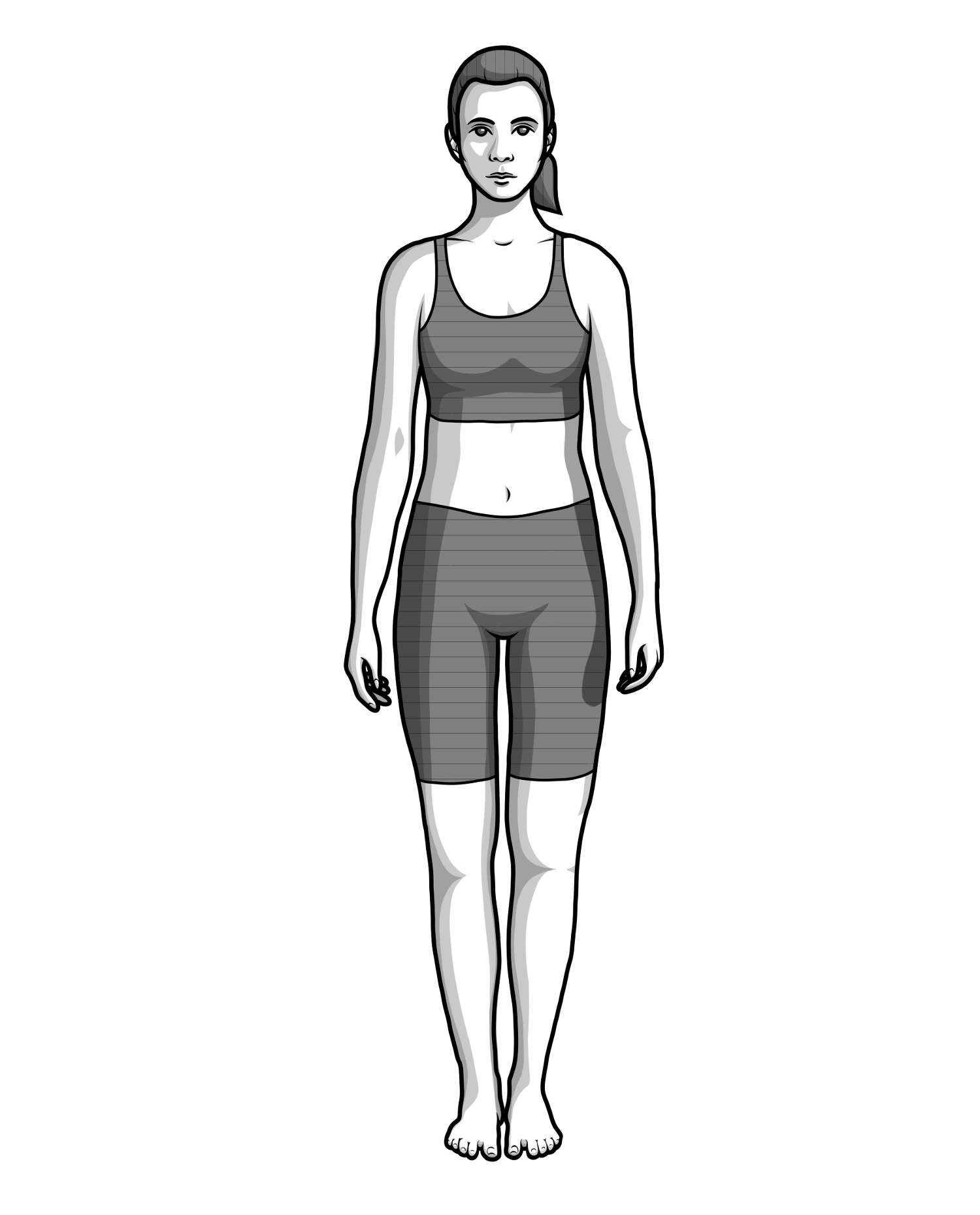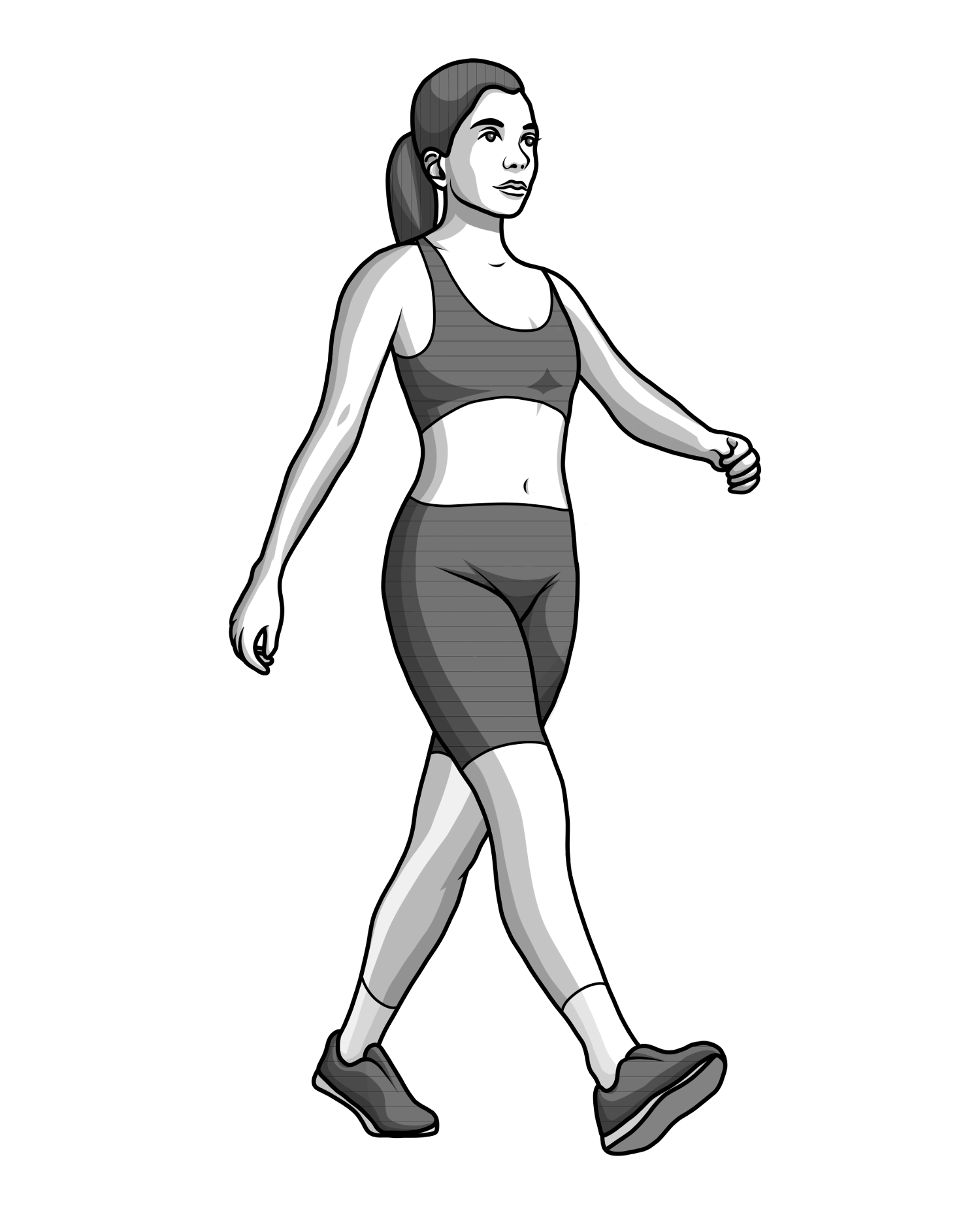Difference between revisions of "Comfortable position"
| Line 1: | Line 1: | ||
<translate> | <translate> | ||
<!--T:1--> | <!--T:1--> | ||
| − | You may choose any of the following positions as long as you are comfortable with | + | You may choose any of the following positions as long as you are comfortable with it and can keep your posture straight till the end of your [[Special:MyLanguage/breathing gymnastics|breathing gymnastics]] session. |
== Sitting == <!--T:2--> | == Sitting == <!--T:2--> | ||
Any straight back position works: sitting on a chair, on your heels (Vajrasana), in "half-lotus" (Ardha Padmasana), "lotus on a pillow" (Siddhasana), or "true lotus" (Padmasana). The last one is considered the best for practicing Pranayama. | Any straight back position works: sitting on a chair, on your heels (Vajrasana), in "half-lotus" (Ardha Padmasana), "lotus on a pillow" (Siddhasana), or "true lotus" (Padmasana). The last one is considered the best for practicing Pranayama. | ||
| + | |||
| + | === On a chair === | ||
| + | You sit on a chair so your feet are flat on the floor and your knees are in line (or slightly lower) with your hips. Adjust the chair height if needed. Keep your hips far back in the chair, your back straight and your chin high. Your arms rest on your laps. | ||
<div class="responsive-img"> | <div class="responsive-img"> | ||
[[File:chair_pos.png|center]] | [[File:chair_pos.png|center]] | ||
</div> | </div> | ||
| + | |||
| + | === On your heels === | ||
| + | Rest your buttocks on the soles of your feet, with your feet and thighs touching. Untuck your toes and press the tops of your feet firmly and evenly along the floor. Keep your back straight, trying to be as tall as possible. You arms rest on your laps. Do not bend your head. | ||
| + | * You may put a folded blanket beneath your legs to feel more comfortable. | ||
| + | * This position is named ''Vajrasana'' in Sanskrit, meaning "Adamant pose" or "Thunderbolt pose". | ||
| + | * If your feet are separated and the buttocks are on the floor, it is ''Virasana'', or "Hero pose". You may also use it if it feels comfortable for breathing gymnastics. | ||
<div class="responsive-img"> | <div class="responsive-img"> | ||
[[File:vajrasana_pos.png|center]] | [[File:vajrasana_pos.png|center]] | ||
</div> | </div> | ||
| + | |||
| + | === Simple crossed leg position === | ||
| + | Sukhasana | ||
| + | |||
| + | === Crossed leg position === | ||
| + | Sit straight with your feet close in to the perineum but resting on the ground. Your ankles are not crossed. You try to look as tall as possible, meaning your spine is erect. Your arms rest on your thighs. | ||
| + | * This position is called ''Muktasana'' in Sanskrit, meaning "Liberation pose", or ''Ardha Siddhasana'' ("Half-accomplished pose"). It is a simplified version of ''Siddhasana'' ("Accomplished pose"). In Siddhasana, ankle bones are touching and the heels are above one another with the top heel pressing the pubis directly above the genitals. | ||
<div class="responsive-img"> | <div class="responsive-img"> | ||
| − | [[File: | + | [[File:siddhasana_pos.png|center]] |
</div> | </div> | ||
| + | |||
| + | === Half lotus === | ||
| + | Take a simple crossed leg position. Then leave one leg bent and resting on the ground, and put the other foot on top of the opposite thigh with its sole facing upward and heel as close to the abdomen as possible. Again, your body position is straight and your arms rest on your thighs or laps. | ||
| + | * In Sanskrit it is called ''Ardha Padmasana'' - Half-lotus pose. It is a simplified version of "Lotus pose", yet it is very stable. | ||
<div class="responsive-img"> | <div class="responsive-img"> | ||
| − | [[File: | + | [[File:ardha_padmasana_pos.png|center]] |
</div> | </div> | ||
| + | |||
| + | === True lotus === | ||
| + | Take a simple crossed leg position. Put one foot on top of the opposite thigh with its sole facing upward and heel close to the abdomen, and the other foot - on the opposite thigh as symmetrically as possible. You may use a folded blanket or a cushion for your knees to feel more comfortable, especially if you are new to this position. Your arms rest on your laps. | ||
| + | * In Sanskrit it is named ''Padmasana'', the "Lotus pose", and is considered as one of the most stable and powerful poses for Pranayama. | ||
<div class="responsive-img"> | <div class="responsive-img"> | ||
[[File:padmasana_pos.png|center]] | [[File:padmasana_pos.png|center]] | ||
| Line 22: | Line 46: | ||
== Lying == <!--T:3--> | == Lying == <!--T:3--> | ||
| − | + | Laying down in a relaxed way is a good choice if you are unable to maintain a straight back position during the whole breathing session. Also it's useful for relaxation, and in case you practice to fall asleep faster.<br> | |
| + | Lay down on your back with your arms and legs put wide in a comfortable way. Close your eyes, focus on your breath and scan your body for muscular tension of any kind and release the tension once found. Give more attention to your face muscles, as usually they are one that create the biggest tension. Once you are done with the practice, stretch your body and turn on the side to switch to fetal pose. Then you can stand on your knees and stand up. | ||
| + | * It is named ''Shavasana'' in Sanskrit, and means "Corpse pose". | ||
| + | * You can bend your knees, keeping the feet hip-width apart, if you have low back pain. | ||
<div class="responsive-img"> | <div class="responsive-img"> | ||
[[File:shavasana_pos.png|center]] | [[File:shavasana_pos.png|center]] | ||
| Line 28: | Line 55: | ||
== Standing == <!--T:4--> | == Standing == <!--T:4--> | ||
| − | + | ||
| + | * This position might decrease the training effectiveness, as more energy for maintaining a straight posture should be spent. | ||
<div class="responsive-img"> | <div class="responsive-img"> | ||
[[File:standing_pos.png|center]] | [[File:standing_pos.png|center]] | ||
Revision as of 18:31, 10 February 2020
You may choose any of the following positions as long as you are comfortable with it and can keep your posture straight till the end of your breathing gymnastics session.
Contents
Sitting
Any straight back position works: sitting on a chair, on your heels (Vajrasana), in "half-lotus" (Ardha Padmasana), "lotus on a pillow" (Siddhasana), or "true lotus" (Padmasana). The last one is considered the best for practicing Pranayama.
On a chair
You sit on a chair so your feet are flat on the floor and your knees are in line (or slightly lower) with your hips. Adjust the chair height if needed. Keep your hips far back in the chair, your back straight and your chin high. Your arms rest on your laps.
On your heels
Rest your buttocks on the soles of your feet, with your feet and thighs touching. Untuck your toes and press the tops of your feet firmly and evenly along the floor. Keep your back straight, trying to be as tall as possible. You arms rest on your laps. Do not bend your head.
- You may put a folded blanket beneath your legs to feel more comfortable.
- This position is named Vajrasana in Sanskrit, meaning "Adamant pose" or "Thunderbolt pose".
- If your feet are separated and the buttocks are on the floor, it is Virasana, or "Hero pose". You may also use it if it feels comfortable for breathing gymnastics.
Simple crossed leg position
Sukhasana
Crossed leg position
Sit straight with your feet close in to the perineum but resting on the ground. Your ankles are not crossed. You try to look as tall as possible, meaning your spine is erect. Your arms rest on your thighs.
- This position is called Muktasana in Sanskrit, meaning "Liberation pose", or Ardha Siddhasana ("Half-accomplished pose"). It is a simplified version of Siddhasana ("Accomplished pose"). In Siddhasana, ankle bones are touching and the heels are above one another with the top heel pressing the pubis directly above the genitals.
Half lotus
Take a simple crossed leg position. Then leave one leg bent and resting on the ground, and put the other foot on top of the opposite thigh with its sole facing upward and heel as close to the abdomen as possible. Again, your body position is straight and your arms rest on your thighs or laps.
- In Sanskrit it is called Ardha Padmasana - Half-lotus pose. It is a simplified version of "Lotus pose", yet it is very stable.
True lotus
Take a simple crossed leg position. Put one foot on top of the opposite thigh with its sole facing upward and heel close to the abdomen, and the other foot - on the opposite thigh as symmetrically as possible. You may use a folded blanket or a cushion for your knees to feel more comfortable, especially if you are new to this position. Your arms rest on your laps.
- In Sanskrit it is named Padmasana, the "Lotus pose", and is considered as one of the most stable and powerful poses for Pranayama.
Lying
Laying down in a relaxed way is a good choice if you are unable to maintain a straight back position during the whole breathing session. Also it's useful for relaxation, and in case you practice to fall asleep faster.
Lay down on your back with your arms and legs put wide in a comfortable way. Close your eyes, focus on your breath and scan your body for muscular tension of any kind and release the tension once found. Give more attention to your face muscles, as usually they are one that create the biggest tension. Once you are done with the practice, stretch your body and turn on the side to switch to fetal pose. Then you can stand on your knees and stand up.
- It is named Shavasana in Sanskrit, and means "Corpse pose".
- You can bend your knees, keeping the feet hip-width apart, if you have low back pain.
Standing
- This position might decrease the training effectiveness, as more energy for maintaining a straight posture should be spent.
Walking
Some patterns can be, and even are recommended to be practiced in movement, like Vrajana Pranayama.
NB
Before starting your training, please make sure that your clothes are not too tight, and they don't hinder your body while making a full inhaling in a position chosen.
